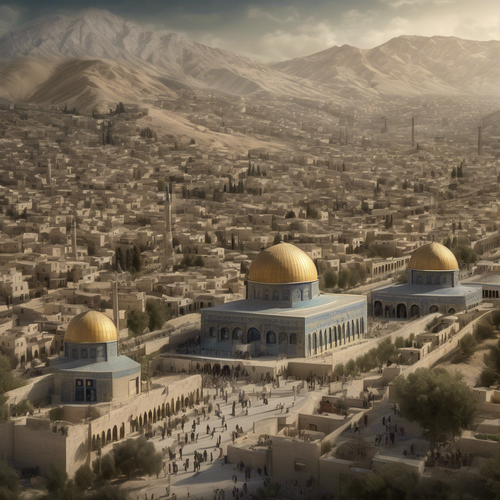The Powder Keg of the Middle East: Israel and Iran’s Escalation
The rhythmic drone of military aircraft over the Levantian skies and the ominous glow of rockets launched from silos is becoming increasingly routine in the already volatile region of the Middle East. Tensions between Israel and Iran are palpable, with each provocation escalating into near-conflict scenarios that threaten global peace. The simmering hostilities are not merely geopolitical firecrackers; they are indicative of a struggle for supremacy over ideology, nuclear capability, and territorial influence. 🌍💣
The Historical Context: A Legacy of Distrust
The backdrop of Israeli-Iranian animosity stretches back decades to the Iranian Revolution of 1979, which saw the ousting of the pro-Western Shah and the establishment of an Islamic Republic. This regime shift marked a definitive turning point, as Iran emerged as a staunch opponent of Israeli policy and a supporter of anti-Israel militant groups, such as Hezbollah and Hamas. Today, the bilateral relationship remains fraught with suspicion and ideological fervor.
Recent events have intensified this rivalry, especially with Iran’s advancing nuclear program—a stark reminder of the existential threat perceived by Israel. The timeline of incidents, from covert assassinations of Iranian scientists to Israel’s repeated airstrikes on Iranian positions in Syria, has transformed the region into a chessboard of geopolitical calculations. ⚖️
The Nuclear Dimension: A Race Against Time
At the heart of this escalating conflict lies Iran’s nuclear ambitions. Despite repeated assurances from Tehran that its nuclear program is for civilian purposes, the international community remains skeptical. A report by the International Atomic Energy Agency (IAEA) indicated that Iran’s uranium enrichment has surpassed levels acceptable under the 2015 nuclear deal, commonly referred to as the JCPOA. The implications of a nuclear-capable Iran are staggering and have spurred Israel to adopt a more aggressive stance regarding preventive action.
“A nuclear Iran isn’t merely a challenge for Israel—it’s a threat to Western interests and regional stability.” — Dr. Eleanor Scott, Middle Eastern Studies Expert.
Recent Developments: From Sabotage to Open Warfare
The latest developments have seen an uptick in military confrontations that underscore the fragile state of peace in the region. In recent months, Israeli forces have launched multiple airstrikes against Iranian targets in Syria, aimed at disrupting arms transfers to Hezbollah. Meanwhile, Iran has retaliated through proxies, launching drone strikes against oil facilities and military bases in the Gulf. 🚁⚔️
Moreover, the role of technology cannot be overlooked. Cyber warfare has become an effective battleground, with both nations engaging in sophisticated cyberattacks. Reports suggest that Iranian cyber units have targeted Israeli infrastructure, while Israeli intelligence has been successful in crippling Iranian facilities related to their nuclear program.
Diplomatic Maneuvers: The Quest for Peace
As hostilities escalate, the potential for a diplomatic resolution remains frail yet crucial. Countries like the United States have attempted to mediate between the two, with varying degrees of success. The recent normalization agreements between Israel and several Arab nations (the Abraham Accords) further complicate the dynamics, isolating Iran and forcing it to recalibrate its strategic calculations. However, these initiatives have also intensified Iran’s resolve to counteract perceived encirclement. 🕊️🤝
The Global Stakes: Beyond the Region
The geopolitical chessboard extends far beyond the Middle East. Any military confrontation between Israel and Iran has the potential to invoke a broader regional conflict, attracting external powers such as the U.S., Russia, and China. Markets are quick to react; the specter of rising oil prices may soon loom over consumer economies globally, reminding us just how interconnected modern geopolitics has become. 🌏💼
Looking Ahead: The Path of Least Resistance?
In a world that is increasingly characterized by polarization and division, the challenges surrounding Israel and Iran are real, complex, and urgent. Both nations are spiraling toward a potential military confrontation that could arise at any moment, with each escalation tied to ideological fervor and national security. What remains to be seen is whether a concerted effort toward dialogue can carve a path to de-escalation, or whether we will find ourselves caught in an endless cycle of aggression. 🌪️


